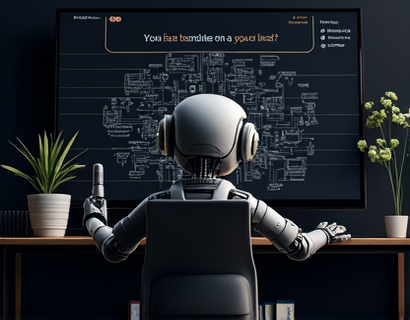Smart Home Elevation: Embracing the Future of Home Living with Cutting-Edge Appliances
In the rapidly evolving landscape of home technology, the concept of smart home elevation has emerged as a transformative force, redefining the way we live and interact with our living spaces. This article delves into the latest innovations in smart home appliances, meticulously curated to blend advanced technology with the essence of modern living. From seamless integration to unparalleled efficiency, these appliances are designed to not only simplify daily routines but also to enhance the overall quality of life. As tech-savvy homeowners seek to embrace the future, understanding these advancements is crucial for those looking to elevate their homes and lifestyles.
The journey into smart home elevation begins with a comprehensive look at the key appliances that are revolutionizing home living. Smart thermostats, for instance, have become a cornerstone of modern home automation. These devices learn your temperature preferences over time and adjust settings automatically to optimize energy usage and comfort. By integrating with other smart devices, they can even adjust temperatures based on your presence or absence, ensuring that your home is always at the perfect temperature without unnecessary energy waste.
Moving on to smart lighting systems, these innovative solutions offer unparalleled control and flexibility. With the ability to adjust brightness, color, and even simulate natural daylight cycles, smart lights can significantly enhance the ambiance of any room. Advanced systems can be controlled via voice commands, smartphone apps, or automated schedules, providing a level of convenience that was once unimaginable. This not only adds to the aesthetic appeal of a home but also contributes to energy savings by ensuring lights are only on when needed.
Smart security systems represent another critical area of smart home elevation. Gone are the days of basic door locks and surveillance cameras. Today’s smart security solutions include advanced cameras with night vision and motion detection, smart locks that can be controlled remotely, and comprehensive monitoring systems that alert homeowners to any suspicious activity. These systems can be integrated with other smart devices, allowing for a holistic approach to home security that provides peace of mind and enhanced safety.
The kitchen is often considered the heart of the home, and smart appliances here are no exception. Smart refrigerators, for example, go beyond just keeping your food cold. Equipped with features like built-in touchscreens, these appliances can manage grocery lists, suggest recipes based on available ingredients, and even order groceries online. Smart ovens and stoves offer precise temperature control and cooking assistance through integrated apps, making meal preparation more efficient and enjoyable. These appliances not only save time but also reduce the risk of human error, ensuring safer and more consistent cooking results.
In the realm of home entertainment, smart TVs and audio systems have set a new standard for immersive experiences. Smart TVs can stream content from various platforms, connect to the internet for updates and additional features, and even function as central hubs for smart home devices. Advanced sound systems, with wireless speakers and voice control capabilities, create a cinematic experience right in your living room. These devices often integrate seamlessly with smart home ecosystems, allowing for a cohesive and synchronized entertainment environment.
Bathrooms are another area where smart technology is making a significant impact. Smart toilets with heated seats, automatic lid opening, and integrated bidet functions offer unparalleled comfort and hygiene. Smart mirrors with built-in displays can show weather updates, news, and even act as virtual assistants, providing hands-free access to information while you get ready. These appliances not only enhance the daily routine but also contribute to a more hygienic and enjoyable bathroom experience.
The integration of smart home technology extends to outdoor spaces as well. Smart irrigation systems, for instance, use weather data and soil moisture sensors to optimize watering schedules, ensuring your garden receives the right amount of water without waste. Smart outdoor lighting systems can adjust brightness based on the time of day and detect motion, enhancing security and energy efficiency. These appliances not only make outdoor living more comfortable but also promote sustainable practices.
One of the most significant advantages of smart home elevation is the ability to create a unified and intuitive user experience. Smart home hubs and voice assistants like Amazon Alexa and Google Assistant serve as central control points, allowing users to manage multiple devices with simple voice commands or through a single app. This level of integration not only simplifies daily tasks but also makes it easier for users to customize their living environments to suit their preferences and needs.
Energy efficiency is a critical consideration in modern home design, and smart appliances play a pivotal role in achieving this goal. Many smart devices are designed to consume less power and operate more efficiently than their traditional counterparts. For example, smart power strips can monitor and control the power usage of connected devices, turning them off when not in use to prevent standby power waste. Smart energy monitors provide real-time data on energy consumption, helping homeowners identify areas for improvement and reduce their overall energy bills.
The benefits of smart home elevation extend beyond convenience and efficiency. These appliances contribute to a more sustainable lifestyle by reducing energy consumption and minimizing waste. By optimizing resource usage and promoting eco-friendly practices, smart home technology aligns with the growing global emphasis on sustainability. Homeowners who adopt these innovations not only enjoy a higher quality of life but also play a part in protecting the environment.
As the smart home market continues to evolve, the future holds even more exciting possibilities. Advancements in artificial intelligence and machine learning are set to make smart devices even more intuitive and responsive. Predictive maintenance features will allow appliances to alert homeowners to potential issues before they become major problems, extending the lifespan of these devices and reducing repair costs. The integration of augmented reality and virtual reality technologies may also transform how we interact with and customize our living spaces, offering new dimensions of personalization and creativity.
For tech-savvy homeowners looking to embrace the future of home living, the key is to stay informed about the latest innovations and trends in smart home technology. This involves exploring reputable e-commerce platforms and specialized stores that offer a curated selection of high-quality, cutting-edge appliances. By investing in these advanced solutions, homeowners can create a smarter, more efficient, and more enjoyable living environment that truly elevates their lifestyle.
In conclusion, smart home elevation represents a significant leap forward in home technology, offering a range of appliances that enhance convenience, efficiency, and sustainability. From smart thermostats and lighting systems to advanced security and kitchen appliances, these innovations are transforming the way we live and interact with our homes. As the market continues to evolve, staying informed and embracing these advancements will be essential for those looking to create a modern, high-tech living space that meets the demands of today’s lifestyle.










































